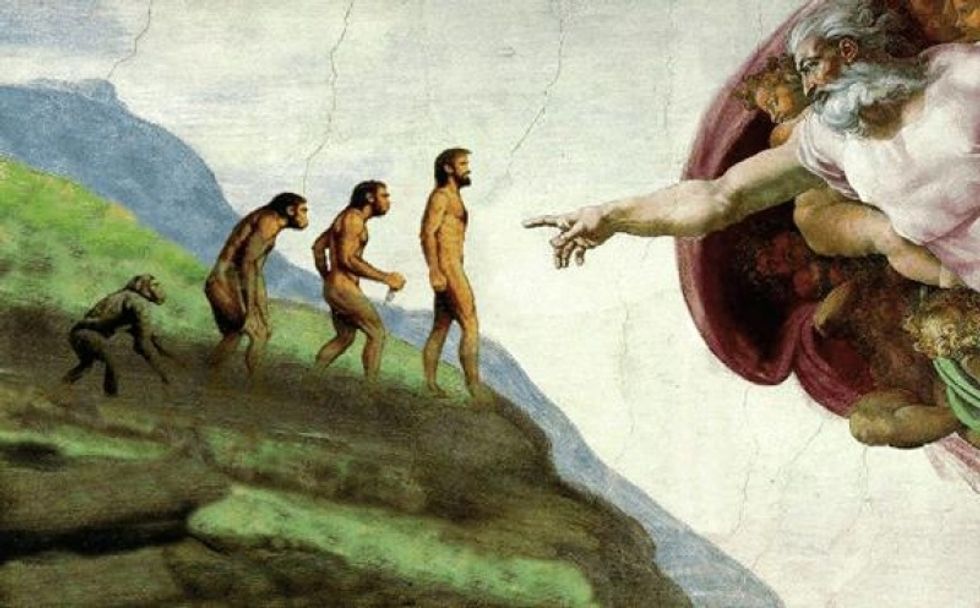I've been questioned many times about my religious beliefs.
About how it is I can call myself a Catholic and endorse the evolving products of science that clash with the idea of a deity. This is where I find the question useless. I would say science and religion's only common ground is the human itself. I've had professors disregard religion as a mere construct of human order, and others profess science as a result of religious matters.
The issue with both views is not so much that one believes its ultimate truth, but the imposition of the ideas upon developing minds. The result of such matters is confused people, and often the tendency to choose a side. You can choose to follow A or B on the argument or rather stand apart and really attempt to comprehend each in its own light. The problem with having a competition on who made what and the origins of such is the moral conflict in the scientist who holds beliefs on a deity and science. How do I know that? Because I fall into that category.
I often attempt to understand science on a molecular and evolutionary view. At the same time, I hold on to a life of ethics, and the idea of free will. Such ideologies could have co-existed in peace, had they not been disrupted by the voracious necessity to claim the one true truth. We have both sides of the argument attempting to sell the best explanation. Ironically, both have disregarded the possibility of tolerance among each other. You could argue on a nihilist view of the matter, where one could possibly say everything is only but a fictitious construct established by man. However, both themes have come to set a specific answer, perhaps, to the human mind.
On the one hand, any religion, at its core urges for a moral and just individual. Regardless of the title, you choose to call your practice. On the other, it is because of science that one is able to be diagnosed with schizophrenia instead of being called possessed. It's time for people to realize that the answer to their somewhat idiotic question is simple: humans' religious practices are based on the idea of the unexplained aspects of morality, life, and internal peace. Science, on the other hand, are the facts, what has been proven.
Regardless of your views, you cannot turn a blind eye to the fact that your bread will get moldy if you leave it to rot, the same way you cannot disregard the peace it gives someone to pray or meditate. It is time one stops comparing and arguing about one or the other's true existence. I have seen people at hospitals say religion is useless, yet falling on their knees when science can no longer offer a solution. The same way I have seen people who don't believe in science, desperately resort to it to save their loved one. The point is, you cannot stigmatize one or the other because it becomes hypocritical the moment you desperately search for both.
Instead of attempting to test the scientist or the religious individual, ask yourself, how it is that both can co-exist in peace, and not be used as an excuse for social atrocities. It is natural to question the root of our beliefs in whichever branch of thought we incline to. We may not find the answers we hope to find, but rather the process of questioning and attempting to understand will begin to formulate a thinker within.

















